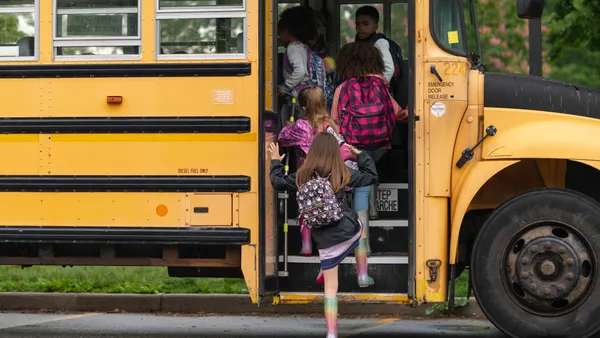Dive Brief:
-
The Centers for Disease Control and Prevention called on schools to prevent and reduce the negative impact of violence and other trauma on teens, as it released a report Monday finding dramatic increases in mental health challenges for teenage girls. The report found nearly 3 in 5 teen girls felt persistently sad or hopeless in 2021, double the rate for boys and a nearly 60% increase over the highest level recorded in the past decade.
-
Nearly 1 in 3 teenage girls seriously considered attempting suicide, also marking a 60% increase from a decade ago. And 1 in 5 said they had experienced sexual violence in the past year, with more than 1 in 10 teen girls experiencing rape.
-
In light of the data, the CDC said school-based activities "can make a profound difference in the lives of teens with a relatively small infusion of support to schools."
Dive Insight:
The Youth Risk Behavior Survey data — collected in fall 2021 when most schools had returned to in-person instruction — is the first of its kind to be collected since the start of the COVID-19 pandemic. The CDC noted that the time spent outside of school during the pandemic may have impacted the outcomes for many students.
The new data showed high and worsening levels of persistent sadness or hopelessness spanned across racial and ethnic groups. But it also found some episodes of violence had increased for certain groups.
The proportion of youth who did not go to school because of safety concerns, for example, rose overall, and yet Black and Hispanic students were more likely than other groups to report this.
Almost 70% of LGBTQ+ students experienced persistent feelings of sadness or hopelessness, and more than 20% attempted suicide during the previous year.
“Young people are experiencing a level of distress that calls on us to act with urgency and compassion,” said Kathleen Ethier, director of CDC's Division of Adolescent and School Health, in a news release. "Schools have the unique ability to help our youth flourish," Ethier said.
“High school should be a time for trailblazing, not trauma," added Dr. Debra Houry, CDC's chief medical officer and deputy director for program and science, in a statement. Houry said the data suggests "our kids need far more support" than they are currently getting.
"Proven school prevention programs," Houry said, "can offer teens a vital lifeline in these growing waves of trauma.”
The health agency suggested evidence-based steps to help prevent and reduce the impact of violence and other trauma and improve mental health on students, including:
- Fostering school connectedness through trusted adults like mentors, teachers and other staff so teens know people around them care about their well-being and success.
- Providing education to equip teens with skills like sexual consent, managing emotions and asking for what they need.
- Connecting teens to classmates and communities through clubs and community outreach.
The CDC noted additional evidence-based strategies and resources for schools are available on its website.













